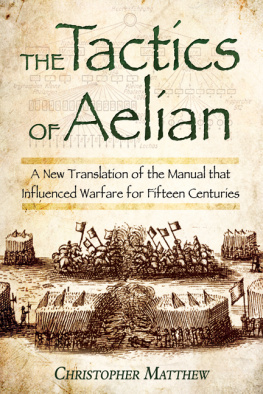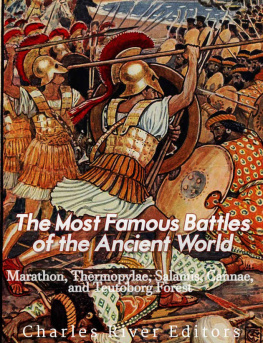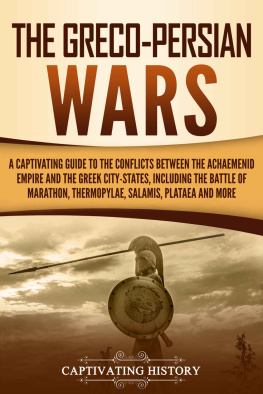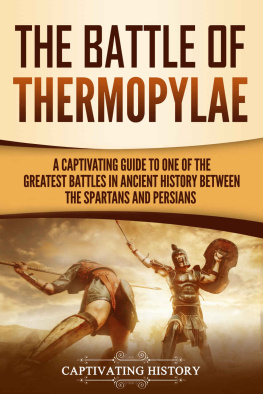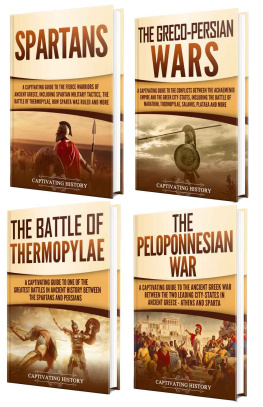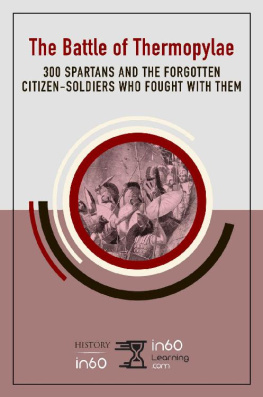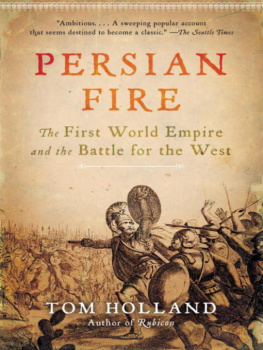This book is dedicated to all of those who have served with honourfrom all nations, in all conflicts and across all times.
First published in Great Britain in 2013 by
Pen & Sword Military
an imprint of
Pen & Sword Books Ltd
47 Church Street
Barnsley
South Yorkshire
S70 2AS
Copyright Christopher A. Matthew & Matthew Trundle 2013
9781783469109
The right of Christopher A. Matthew & Matthew Trundle to be identified as the Author of this Work has been asserted by him in accordance with the Copyright, Designs and Patents Act 1988.
A CIP catalogue record for this book is available from the British Library
All rights reserved. No part of this book may be reproduced or transmitted in any form or by any means, electronic or mechanical including photocopying, recording or by any information storage and retrieval system, without permission from the Publisher in writing.
Typeset in Ehrhardt by
Mac Style, Driffield, East Yorkshire
Printed and bound in the UK by MPG
Pen & Sword Books Ltd incorporates the Imprints of Pen & Sword
Aviation, Pen & Sword Maritime, Pen & Sword Military, Wharncliffe
Local History, Pen and Sword Select, Pen and Sword Military
Classics, Leo Cooper, The Praetorian Press, Remember When,
Seaforth Publishing and Frontline Publishing.
For a complete list of Pen & Sword titles please contact
PEN & SWORD BOOKS LIMITED
47 Church Street, Barnsley, South Yorkshire, S70 2AS, England
E-mail: enquiries@pen-and-sword.co.uk
Website: www.pen-and-sword.co.uk
Foreword
T he Battle of Thermopylae is one the most famous battles in history. In June of 2012, on the eve of a European Football Championship quarter-final match between the highly rated German team and the struggling Greek national side, Diego Maradonna, former captain and coach of Argentina, declared to the assembled sports journalists that, if 300 Greeks were able to hold off 10,000 Persians at Thermopylae, then eleven Greeks certainly will have a chance against eleven Germans. Maradonnas allusion to the heroic last stand made by 300 Spartan soldiers against the military might of the Persian king in 480 BC required no further elaboration. Anyone who had been following the television broadcasts of the European Championships would already have seen several Greek supporters attending their countrys group matches wearing modern replicas of ancient Greek hoplite helmets. Those costumes invoked a tradition of grim determination in the face of apparently overwhelming odds that is forever associated with King Leonidas and his 300 Spartans.
The story of Thermopylae is, however, about far more than the popular tale of 300 brave warriors who preferred death to surrender. For one thing, the Greek force that stayed with the Spartan king to the bitter end included 400 Thebans and 700 men from the city of Thespiae, as well as an unknown number of slave attendants. Their demise came after several days of fighting, not just in the narrow pass, where an army of at least 10,000 Greeks sought to halt the advance of a far larger Persian army until reinforcements arrived, but also out at sea. Off the nearby headland of Artemisium a fleet of over 300 Greek warships fought a Persian fleet that was more than double its size in several indecisive encounters.
Thermopylae was one of several major battles that were fought during the invasion of Greece by the Persian King Xerxes in 480479 BC, and that invasion itself was part of the long-running conflict between the Persian Empire and the Greek city states, known to historians as the Persian Wars, which lasted from 499 to 478 BC. Some of the other battles are also well known, like the Athenian victory over the Persians at Marathon in 490 BC, or the naval clash at Salamis in 480 BC, or the decisive defeat of Xerxes army at Plataea in 479 BC. Yet none of these battles are as famous as Thermopylae.
On the face of it the Battle of Thermopylae and the associated naval encounters at Artemision were hardly a cause for celebration. The main Greek army retreated, leaving King Leonidas and his small rearguard to their fate. That retreat, along with the withdrawal of the Greek fleet, left the Persians free to overrun central Greece and capture the great cities of Thebes and Athens. Yet from this military debacle a legend was born that has captured the imaginations of generations of writers, artists and scholars.
One of the main reasons why the story of Thermopylae is so compelling is that literary accounts survive which enable, indeed invite us to empathize with the protagonists and imagine what we ourselves might have thought, felt and done in such circumstances. The first ever work of scientific history, written in the 430s BC by Herodotus, a Greek from Halicarnassus in Western Anatolia, took the Persian Wars as its subject. Detailed records of historical events had been compiled for centuries in Egypt and the Near East, but they were official chronicles recording the military, religious and political deeds of kings. Herodotus Histories (a Greek word literally meaning enquiries) differed from such chronicles because it was not a state authorized version of events, but the result of personal research into the activities and achievements of political entities, ethnic groups and communities, rather than individual rulers. An essential aspect of Herodotus work was his desire to show how and why events occured. His open-minded search for ways to explain the complex connections between peoples and events encouraged him to reflect critically upon his diverse and sometimes conflicting sources of information.
Another prominent feature of Herodotus Histories is the way in which he deliberately weaves a wealth of information on places, events and, above all, people into his main narrative. Drawing on official memorials, divine oracles, local histories and a myriad of oral traditions he offers insights into the ideals and values that drove the protagonists, as well as anecdotes and sub-plots that bring the story to life in a remarkable fashion. Thus we learn about the trials and tribulations of Aristodemus, one of two Spartan soldiers who survived the battle of Thermopylae. Unjustly accused of cowardice, he only redeemed himself by a suicidal solo charge into the enemy ranks at the Battle of Plataea a year later. Herodotus uses fictitious dialogues, such as those between the Persian King Xerxes and the exiled Spartan King Demaratus, to elucidate such extreme behaviour, and he describes at length the customs of the vast array of peoples who made up the Persian Empire.


